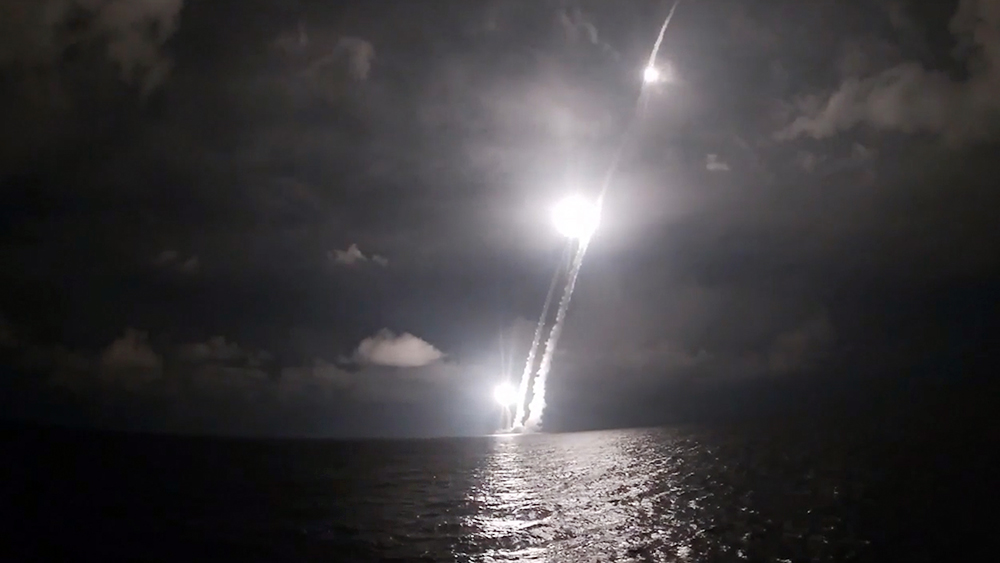Russian nuclear forces test-fires four Intercontinental Ballistics Missiles (ICBMs) from an under-water nuclear submarine on Saturday (12-Dec-2020) in a show of readiness amid recent tension with the USA.
Russian Defense Ministry said that the nuclear submarine Vladimir Monomakh from Pacific Fleet launched four Bulava ICBMs in quick succession from an underwater position in the sea of Okhotsk. Missiles carrying dummy warheads hit their designated targets on the Chiza shooting range in the Arkhangelsk region in north-western Russia, which is more than 5500 km (over 3400 miles) away, the ministry said in a statement.
The Vladimir Monomakh is one of the new Borei-class nuclear submarine that can carry up to 16 Bulava missiles and are aimed to serve as the core of the naval component of the nation’s nuclear forces for the decade to come. Another nuclear submarine of the same class performed a similar launch of four Bulava ICBMs in 2018 – a costly demonstration of the efficiency of the country’s nuclear deterrent mimicking the condition of major nuclear-armed conflict.
Rafale is no way near stealth fighter J-20, Chinese and Indian Military experts opinions
In a report to President Vladimir Putin, Defense Minister Sergei Shoigu said that Saturday’s test launch wrapped up large-scale drills of Russia’s Strategic Nuclear Forces that began on Wednesday. As a part of those maneuvers, another Russian nuclear submarine performed a test launch of ICBMs from the Barents Sea, a ground-based ICBM was launched from the Plesetsk facility in north-western Russia, and Tu-160 and Tu-95 strategic bombers fired cruise missiles at test targets at an Arctic range.
Russia has expanded its military drills in recent years amid growing tension with the West. The relations between Russia and the West have sunk to post cold-war lows after Russia’s 2014 annexation of Ukraine’s Crimean Peninsula.
The series of missile test launches come in less than 2 months before the new Strategic Arms Reduction Treaty (START) between the US and Russia expires in early February-2021. Both countries discussed the possibility of the extension of the treaty but so far have failed to overcome their differences.
Strategic Arms Reduction Treaty (START) was a bilateral treaty between the US and the Union of Soviet Socialist Republic (USSR) on the reduction and limitation of strategic offensive arms. The treaty was signed on 31-July-1991 between the two countries.
China has increased the production of JF-17 in 2020
New START was signed in 2010 between Washington and Moscow. It limits each country to no more than 1550 deployed nuclear warheads and 700 deployed missiles and bombers and envisages sweeping on-site inspections to verify compliance.
After both the US and Russia withdrew from the 1987 Intermediate-Range Nuclear Forces Treaty last year, New START is the only remaining nuclear arms control deal still standing between the two countries.
Arms control advocates have warned that the expiration of the last standing treaty New START would revoke any checks on US and Russian nuclear forces and that will be a big blow to global stability.


